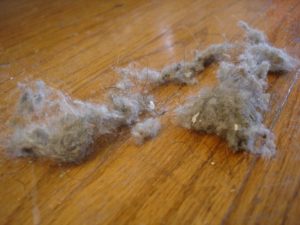 Can pesticides be detected in your home? A Cornell University study found that every single home they studied in different areas of upstate New York had detectable pesticide residues in the homes. Every single one of the 132 rural homes.
Can pesticides be detected in your home? A Cornell University study found that every single home they studied in different areas of upstate New York had detectable pesticide residues in the homes. Every single one of the 132 rural homes.
Pesticides are colorless and odorless, but they still may be in your home from applications in the home or around the home from long ago. Pesticides can also be tracked in by your shoes or bare feet, on fur and clothing, or come in on the air (drift from pesticides being applied nearby), even off-gassing from soil. They stay in the dust in homes, and are absorbed by soft materials (such as rugs and upholstery, and even stuffed toys). Pesticides stay around so long (some even years) inside homes because they are not broken down easily (as they can be outdoors in the sun and rain).
The researchers pointed out that Americans use over 1 billion pounds of pesticides each year. Pesticides have health risks, even at low doses - for example, higher risks of various cancers, birth defects, neurological and immunological problems. Pregnant women (developing babies) and children are especially vulnerable to pesticide effects. For example, children are playing and crawling around on the floor sticking objects and their hands into the mouth. Pets also have health risks from pesticides, such as cancer.
While the pesticide residue samples in this study were taken in 2001 to 2002, the findings should apply today because pesticide use has risen tremendously since then - both on farms and elsewhere. And they tested for pesticides that are still commonly used today - such as 2.4-D (a commonly used herbicide, e.g. weed & feed for lawns, and on crops genetically modified to resist 2,4-D). The researchers didn't test for all the possible pesticides commonly used - just 15 of them. Unfortunately they didn't test for glyphosate , which is in Roundup, and heavily used nowadays - in crops and elsewhere as an herbicide (weed killer).
Think about it - at least in in the northeast, more people are using lawn pesticide services to get that "perfect, carpet-looking lawn" (really a monoculture that is environmentally horrible - to bees and butterflies, soil organisms, birds, and anyone walking on it).
How many people do you know get monthly or annual pesticide treatments in or around their homes "just in case"? In every instance people are getting exposed to pesticides - breathing them in, getting them on their shoes, feet, clothing, bodies. Besides this study, other studies have also found pesticides in household and daycare center dust. How do studies measure pesticides in people? Typically by measuring their levels in blood and urine.
So what can one do to lower the amount and number of pesticides in the home?
1) First of all, don't use pesticides casually or routinely in your him. Use non-toxic alternatives instead - this is called least toxic IPM (Integrated Pest Management), which emphasizes monitoring the problem, looking for what causes the pest problem (moisture getting into the house, holes in the wall, etc.) and then treating the cause. It uses alternatives to "just spraying a pesticide" such as baits, traps, vacuuming of pests!, caulking where needed, fixing wet areas. It means thinking like a pest and what attracts the pest (the cause), and using the most non-toxic way possible to correct the problem.
2) Very important: take off shoes when entering your home.
3) Wipe up dust and vacuum frequently in the home. Other contaminants are also in the dust, such as lead and fire retardant chemicals.
4) Use organic approaches to gardening and taking care of your lawn. [Click on category PESTICIDES for all posts on pesticides, including their health effects. All 2,4-D posts. All pregnancy and pesticide posts.]
The study by Laquatra et al in JSM Health Education & Primary Health Care: Common Pesticide Residues in Rural Homes of New York State
Excerpts from Beyond Pesticides discussion of this study in its Daily News Blog: Study of New York State Homes Finds Pesticides In Every Sample Tested ...continue reading "Can Pesticides Be Detected In Your Home?"
